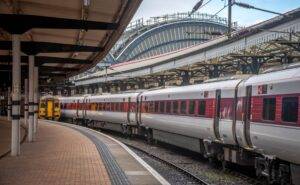MPs have warned that rail subsidies are at unsustainable levels, criticising the Government for delays in rail reforms.
The Public Accounts Committee (PAC) highlighted the billions of pounds spent supporting passenger rail services in a recent report on rail reform progress.
The PAC stated: “Much of the proposed reforms and associated benefits are now largely on hold until the next Parliament. The Department for Transport has not yet established Great British Railways (GBR), the new organisation intended to act as the ‘guiding mind’ for the whole rail system, originally planned to be operational by March 2024. Meanwhile, no one is prioritising the needs of passengers and taxpayers.”
Passenger train companies received £4.4 billion in subsidies in the 12 months to March 2023, down from the £11.7 billion provided in the 2020-21 financial year, during the height of the Covid-19 pandemic. In 2019, the industry required a relatively modest £1.7 billion in subsidies, leading to speculation that the sector could become financially self-sustaining—a goal considered the holy grail of rail operations.
Labour has pledged to continue the Government’s commitment to establishing GBR, proposing it as a reincarnation of British Rail to directly run train services. Louise Haigh, the shadow transport secretary, stated that Labour would use GBR to take over private operators as their contracts expire.
According to analysis, based on data from the Office of Rail and Road, private operators received just under £58 million in dividends last year. Train companies generated £8.4 billion from fares and onboard catering.
The PAC’s report underscores the urgent need for rail reform and highlights the financial burden on taxpayers, stressing that the current level of subsidies is unsustainable and necessitating immediate action to prioritise the interests of passengers and taxpayers alike.
Read more:
MPs Declare Rail Subsidies ‘Unsustainable’ Amidst Stalled Reforms

